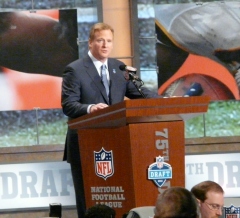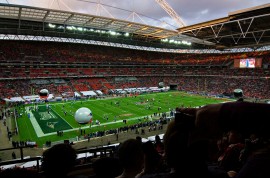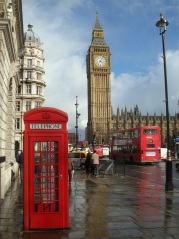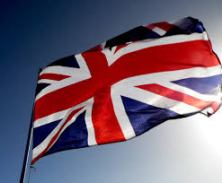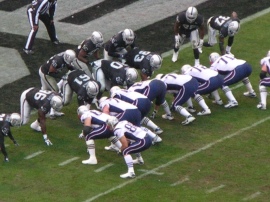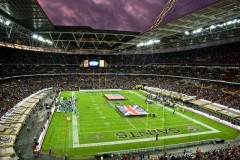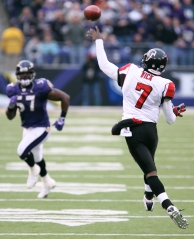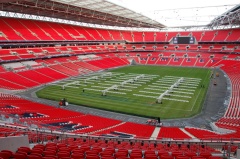Eventually Los Angeles and London will have their own National Football League franchises. Commissioner Roger Goodell has made it clear what he wants:
I want both [London and LA], but it doesn’t matter which one is first.”
It’s been almost two decades since the Oakland Raiders and St. Louis Rams called L.A. home. The NFL Draft may be held in the City of Angels next year, but residents shouldn’t get too excited too soon because London will have a team first.
The league is just putting a lot of emphasis on playing abroad. Goodell said this to a crowd of fans in Europe last October:
We are making sure we can bring more football to more people. The UK fans have been terrific. Seeing over 500,000 people the day before the game at a rally is really extraordinary. It is a signal that there is real interest in our game internationally.”
The NFL has gradually increased the number of International Series games at Wembley Stadium since 2007; this year there will be three games. There’s even talk they could play four games next year and five games in 2016. As Pro Football Hall of Fame President David Baker pointed out, L.A. has no games scheduled.
London is a new market with a ton of potential. Europeans haven’t been overexposed to American football, so they are loving every minute of it. Every game at Wembley has sold-out and television ratings in England keep increasing.
Here’s another factor: London has a population of 8.3 million, while Los Angeles only has 3.8 million. That’s 4.5 million more wallets the league can try to open up — and that doesn’t even consider the folks who live elsewhere in Europe who are also interested in the NFL.
As the L.A. Times explained, staying out of L.A. may be the best move for right now:
This market has already lost two teams, and three if you count the short-lived L.A. Chargers. In that sense, it’s about as rock-solid reliable as a Hollywood marriage.”
Here’s the biggest hang-up: League officials have made it clear that L.A. lacks the proper stadium to house a team. Even experts have weighed in:
The political structure with funding stadiums is horrendous in the state of California. The other big challenge from having lived down in LA is the amount of transplants that live there.”
“But like [Roger] said, the most important thing is to have the right facility. You have so many choices in L.A. of things to do. And the weather is great; the people are great. If you don’t have something really compelling, people won’t be there all the time.”
Here’s another hint at what’s to come: NFL officials have confirmed they’re shopping around for a new venue in London when the contract with Wembley expires in two years. Check out this previous blog post for more on that.
At least Goodell has given a timetable on when to expect an expansion across the Atlantic Ocean:
We actually couldn’t be more surprised by the tremendous demand for NFL football in London, in the UK in general, and frankly in Europe. So it’s not something that I think is 15 or 20 years away. It could be five or 10 years away.”
When you compile all the obvious signs, the NFL has made it pretty clear that it wants to get to Europe tomorrow. That’s the first item on their agenda. Plus, they’d become the only American professional sports league to have a team based in Europe. Maybe after they complete the task, then they can work on getting a franchise in L.A.
